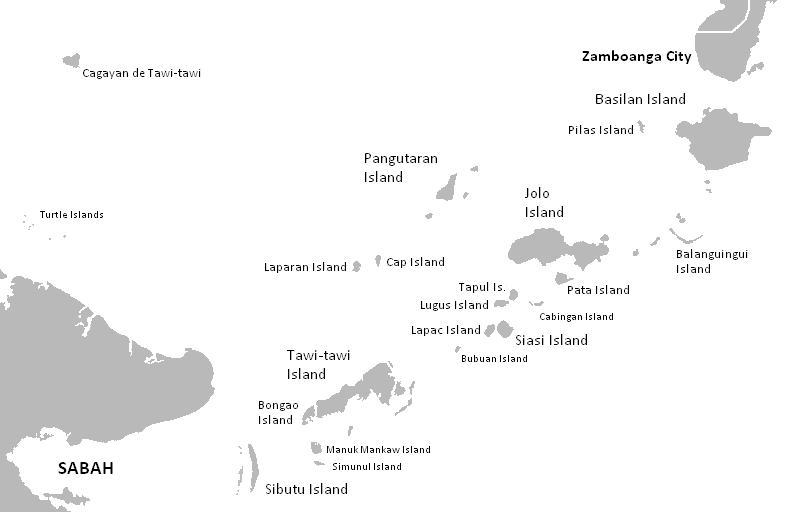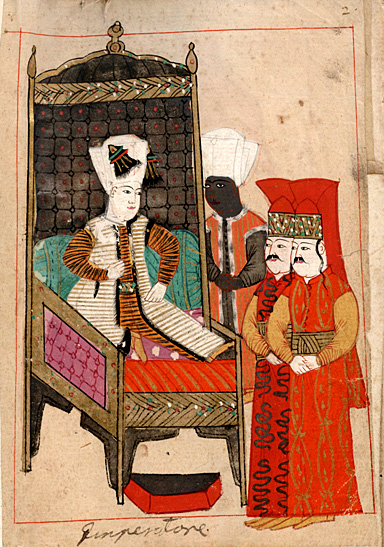|
Azim Ud-Din II
Sultan Azim ud-Din II (reigned 1763–1764, 1778–1791), was the 21st Sultan of Sulu. He was the son of Sultan Bantilan Muizz ud-Din, and cousin to Sultan Muhammad Israil ud-Din. After the death of Sultan Bantilan Muizz ud-Din in 1763, he became the Sultan of Sulu; which lasted until 1764 when the British forced the restoration of the former Sultan Azim ud-Din I. In 1778, he poisoned his cousin and the reigning Sultan Muhammad Israil ud-Din which led to his proclamation as the new sultan for the second time. References Sultans of Sulu Filipino datus, rajas and sultans Year of birth unknown Year of death unknown Filipino Muslims {{Philippines-bio-stub ... [...More Info...] [...Related Items...] OR: [Wikipedia] [Google] [Baidu] |
Sultan
Sultan (; ar, سلطان ', ) is a position with several historical meanings. Originally, it was an Arabic abstract noun meaning "strength", "authority", "rulership", derived from the verbal noun ', meaning "authority" or "power". Later, it came to be used as the title of certain rulers who claimed almost full sovereignty (i.e., not having dependence on any higher ruler) without claiming the overall caliphate, or to refer to a powerful governor of a province within the caliphate. The adjectival form of the word is "sultanic", and the state and territories ruled by a sultan, as well as his office, are referred to as a sultanate ( '. The term is distinct from king ( '), despite both referring to a sovereign ruler. The use of "sultan" is restricted to Muslim countries, where the title carries religious significance, contrasting the more secular ''king'', which is used in both Muslim and non-Muslim countries. Brunei and Oman are the only independent countries which retain the ti ... [...More Info...] [...Related Items...] OR: [Wikipedia] [Google] [Baidu] |
Sultanate Of Sulu
The Sultanate of Sulu (Tausug language, Tausūg: ''Kasultanan sin Sūg'', كاسولتانن سين سوڬ; malay language, Malay: ''Kesultanan Sulu''; fil, Sultanato ng Sulu; Chavacano: ''Sultanato de Sulu/Joló''; ar, سلطنة سولك) was a Muslim Sovereign state, state that ruled the Sulu Archipelago, parts of Mindanao and certain portions of Palawan in today's Philippines, alongside parts of present-day Sabah, North Kalimantan, North and East Kalimantan in north-eastern Borneo. The sultanate was founded either on 17 November 1405 or 1457 by Johore-born explorer and religious scholar Sharif ul-Hāshim of Sulu, Sharif ul-Hashim. ''Paduka Mahasari Maulana al Sultan Sharif ul-Hashim'' became his full regnal name, ''Sharif-ul Hashim'' is his abbreviated name. He settled in Buansa, Sulu. After the marriage of Abu Bakr and a local ''dayang-dayang'' (princess) Paramisuli, he founded the sultanate. The sultanate gained its independence from the Bruneian Empire in 1578. At i ... [...More Info...] [...Related Items...] OR: [Wikipedia] [Google] [Baidu] |
Sultan Bantilan Muizz Ud-Din
Sultan (; ar, سلطان ', ) is a position with several historical meanings. Originally, it was an Arabic abstract noun meaning "strength", "authority", "rulership", derived from the verbal noun ', meaning "authority" or "power". Later, it came to be used as the title of certain rulers who claimed almost full sovereignty (i.e., not having dependence on any higher ruler) without claiming the overall caliphate, or to refer to a powerful governor of a province within the caliphate. The adjectival form of the word is "sultanic", and the state and territories ruled by a sultan, as well as his office, are referred to as a sultanate ( '. The term is distinct from king ( '), despite both referring to a sovereign ruler. The use of "sultan" is restricted to Muslim countries, where the title carries religious significance, contrasting the more secular ''king'', which is used in both Muslim and non-Muslim countries. Brunei and Oman are the only independent countries which retain the t ... [...More Info...] [...Related Items...] OR: [Wikipedia] [Google] [Baidu] |
Sultan Azim Ud-Din I
Muhammad Azim ud-Din I ( ar , مُحَمَّدعلیم الدین, Jawi:محمدعلیم الدیند also Muhammad Alimuddin; Christian Name: Don Fernando de Alimuddin) was Sultan of Sulu from 1735 to 1748, and again from 1764 until his abdication in 1774. He was briefly converted to Catholicism under the name Fernando until he returned to Sulu and reverted to Islam, dying as a Muslim. Early life The young Alimuddin initially attended the school of his father, Badar ud-Din I, and was later sent to Batavia, Dutch East Indies, to complete his education. There he became proficient in Arabic and Malay, and gained mastery of the Qur'an. First reign Azim ud-Din I acceded the throne in 1732 after his father abdicated, but only assumed full powers and formal recognition in 1735 when his cousin, Nasar ud-Din, abandoned claims to the throne. One of the earliest events in the reign of Azim ud-Din I was his ratification of the Treaty of 1737. He was represented in Manila by D ... [...More Info...] [...Related Items...] OR: [Wikipedia] [Google] [Baidu] |
Sultan Muhammad Israil Ud-Din
Sultan (; ar, سلطان ', ) is a position with several historical meanings. Originally, it was an Arabic abstract noun meaning "strength", "authority", "rulership", derived from the verbal noun ', meaning "authority" or "power". Later, it came to be used as the title of certain rulers who claimed almost full sovereignty (i.e., not having dependence on any higher ruler) without claiming the overall caliphate, or to refer to a powerful governor of a province within the caliphate. The adjectival form of the word is "sultanic", and the state and territories ruled by a sultan, as well as his office, are referred to as a sultanate ( '. The term is distinct from king ( '), despite both referring to a sovereign ruler. The use of "sultan" is restricted to Muslim countries, where the title carries religious significance, contrasting the more secular ''king'', which is used in both Muslim and non-Muslim countries. Brunei and Oman are the only independent countries which retain the t ... [...More Info...] [...Related Items...] OR: [Wikipedia] [Google] [Baidu] |
Sultan Sharaf Ud-Din
Sultan (; ar, سلطان ', ) is a position with several historical meanings. Originally, it was an Arabic abstract noun meaning "strength", "authority", "rulership", derived from the verbal noun ', meaning "authority" or "power". Later, it came to be used as the title of certain rulers who claimed almost full sovereignty (i.e., not having dependence on any higher ruler) without claiming the overall caliphate, or to refer to a powerful governor of a province within the caliphate. The adjectival form of the word is "sultanic", and the state and territories ruled by a sultan, as well as his office, are referred to as a sultanate ( '. The term is distinct from king ( '), despite both referring to a sovereign ruler. The use of "sultan" is restricted to Muslim countries, where the title carries religious significance, contrasting the more secular ''king'', which is used in both Muslim and non-Muslim countries. Brunei and Oman are the only independent countries which retain the t ... [...More Info...] [...Related Items...] OR: [Wikipedia] [Google] [Baidu] |
Sunni Islam
Sunni Islam () is the largest branch of Islam, followed by 85–90% of the world's Muslims. Its name comes from the word '' Sunnah'', referring to the tradition of Muhammad. The differences between Sunni and Shia Muslims arose from a disagreement over the succession to Muhammad and subsequently acquired broader political significance, as well as theological and juridical dimensions. According to Sunni traditions, Muhammad left no successor and the participants of the Saqifah event appointed Abu Bakr as the next-in-line (the first caliph). This contrasts with the Shia view, which holds that Muhammad appointed his son-in-law and cousin Ali ibn Abi Talib as his successor. The adherents of Sunni Islam are referred to in Arabic as ("the people of the Sunnah and the community") or for short. In English, its doctrines and practices are sometimes called ''Sunnism'', while adherents are known as Sunni Muslims, Sunnis, Sunnites and Ahlus Sunnah. Sunni Islam is sometimes referred ... [...More Info...] [...Related Items...] OR: [Wikipedia] [Google] [Baidu] |
Sultans Of Sulu
Sultan (; ar, سلطان ', ) is a position with several historical meanings. Originally, it was an Arabic abstract noun meaning "strength", "authority", "rulership", derived from the verbal noun ', meaning "authority" or "power". Later, it came to be used as the title of certain rulers who claimed almost full sovereignty (i.e., not having dependence on any higher ruler) without claiming the overall caliphate, or to refer to a powerful governor of a province within the caliphate. The adjectival form of the word is "sultanic", and the state and territories ruled by a sultan, as well as his office, are referred to as a sultanate ( '. The term is distinct from king ( '), despite both referring to a sovereign ruler. The use of "sultan" is restricted to Muslim countries, where the title carries religious significance, contrasting the more secular ''king'', which is used in both Muslim and non-Muslim countries. Brunei and Oman are the only independent countries which retain the tit ... [...More Info...] [...Related Items...] OR: [Wikipedia] [Google] [Baidu] |
Filipino Datus, Rajas And Sultans
Filipino may refer to: * Something from or related to the Philippines ** Filipino language, standardized variety of 'Tagalog', the national language and one of the official languages of the Philippines. ** Filipinos, people who are citizens of the Philippines or are of Filipino descent. Other uses * Filipinos (snack food), branded cookies manufactured in Europe See also * * * Filipinas (other) Filipinas may refer to: * ''Filipinas, letra para la marcha nacional'', the Spanish poem by José Palma that eventually became the Filipino national anthem. * The original Spanish name, and also used in different Philippines languages including F ... {{disambiguation Language and nationality disambiguation pages ... [...More Info...] [...Related Items...] OR: [Wikipedia] [Google] [Baidu] |
Year Of Birth Unknown
A year or annus is the orbital period of a planetary body, for example, the Earth, moving in its orbit around the Sun. Due to the Earth's axial tilt, the course of a year sees the passing of the seasons, marked by change in weather, the hours of daylight, and, consequently, vegetation and soil fertility. In temperate and subpolar regions around the planet, four seasons are generally recognized: spring, summer, autumn and winter. In tropical and subtropical regions, several geographical sectors do not present defined seasons; but in the seasonal tropics, the annual wet and dry seasons are recognized and tracked. A calendar year is an approximation of the number of days of the Earth's orbital period, as counted in a given calendar. The Gregorian calendar, or modern calendar, presents its calendar year to be either a common year of 365 days or a leap year of 366 days, as do the Julian calendars. For the Gregorian calendar, the average length of the calendar year ( ... [...More Info...] [...Related Items...] OR: [Wikipedia] [Google] [Baidu] |
Year Of Death Unknown
A year or annus is the orbital period of a planetary body, for example, the Earth, moving in its orbit around the Sun. Due to the Earth's axial tilt, the course of a year sees the passing of the seasons, marked by change in weather, the hours of daylight, and, consequently, vegetation and soil fertility. In temperate and subpolar regions around the planet, four seasons are generally recognized: spring, summer, autumn and winter. In tropical and subtropical regions, several geographical sectors do not present defined seasons; but in the seasonal tropics, the annual wet and dry seasons are recognized and tracked. A calendar year is an approximation of the number of days of the Earth's orbital period, as counted in a given calendar. The Gregorian calendar, or modern calendar, presents its calendar year to be either a common year of 365 days or a leap year of 366 days, as do the Julian calendars. For the Gregorian calendar, the average length of the calendar year (the mea ... [...More Info...] [...Related Items...] OR: [Wikipedia] [Google] [Baidu] |







